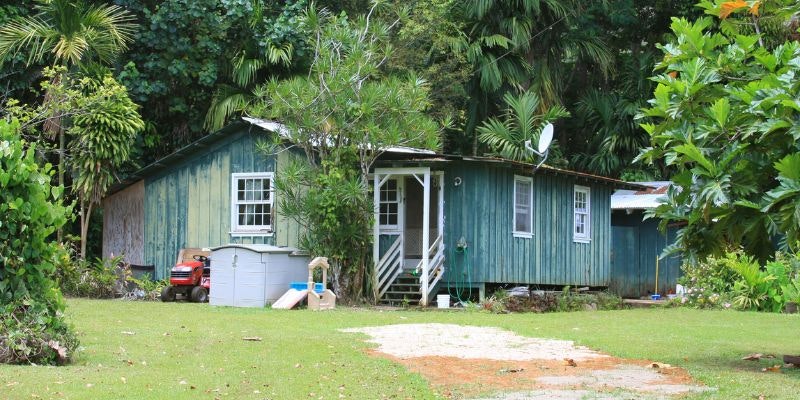
Inheriting a family home in Hawaii can feel both like a gift and a responsibility. Alongside the emotional aspect of managing a loved one’s legacy, you’ll also face practical decisions that require careful thought and planning. From legal requirements to financial implications, here’s what you need to know if you inherit property in the Islands.
Confirm the Legal Transfer of Ownership
The first step is to establish your legal rights to the home. Depending on how the property was titled, ownership may transfer directly through joint tenancy, or it may need to go through probate if there was no trust in place. Hawaii probate law can be complex, so working with a local attorney who specializes in estate law ensures that the title is properly transferred into your name and any liens or encumbrances are identified early. If you don't have a real estate lawyer, your Locations agent can recommend one.
Understand the Tax Implications
Hawaii does not impose a state inheritance tax, but federal estate tax rules may apply depending on the total value of the estate. Hawaii also has its own state estate tax, which is paid by the estate itself before assets are distributed. The Hawaii estate tax applies to properties valued at more $5.49 million in 2025. The estate tax is a progressive tax, with rates ranging from 10 to 20 percent. This tax is in addition to the federal estate tax, which has a much higher exemption of $13.99 million in 2025. Beginning in 2026, that exemption will permanently increase to $15 million per person.
Additionally, property taxes will continue to accrue, and you may need to update the homeowner’s exemption status with the City and County of Honolulu (or your respective county). One benefit to heirs is the “step-up in basis,” which resets the property’s tax basis to its market value at the time of inheritance. Often, this will reduce capital gains if you choose to sell. A tax advisor familiar with Hawaii real estate can guide you through these calculations.
Assess the Property’s Condition
Inherited homes are sometimes well-maintained, but they can also require significant repairs or updates, especially if the owner lived there for many years, or the home has been rented out or left vacant. Schedule a professional inspection to identify potential issues—such as roofing, plumbing, or electrical work—that may affect your decision to keep, rent or sell. This step helps you budget for necessary maintenance and avoid unexpected costs down the road. Your Locations agent can recommend a reputable home inspector, if needed.
Decide How You Want to Use the Property
This is often the most personal, and sometimes the most challenging, decision. You’ll generally have a few options, including:
- Keep the property. You can choose to keep the property and use it as a primary residence, second home or family legacy.
- Rent it out. If you choose to rent the property, you may be able to earn additional income. However, this option also requires ongoing management and compliance with Hawaii’s rental regulations, including restrictions on short-term rentals. If you go with this option, you can enlist the help of a property management company, like Locations Property Management. If you do not live locally, you will need to hire a property manger.
- Sell the property. Selling the property may be the most practical choice if you prefer liquidity over long-term ownership. Your choice will depend on your financial circumstances, emotional connection to the home and long-term financial goals.
- Exchange the property. If the home has a high value but is in poor condition—a common challenge in many of Oahu's established neighborhoods—you could consider using a 1031 exchange to roll the sale of your family home into the purchase of a new investment property (or properties) with fewer maintenance costs or greater rental income potential—tax deferred. If you're unfamiliar with this tax-savings strategy, you'll want to consult with a real estate tax attorney and a knowledgable agent. We also suggest attending our free Locations Real Estate Investment Seminar. View upcoming seminars—or ask your Locations agent keep you posted on the next one.
Consider Family Dynamics
If you inherit the home alongside siblings or other relatives, clear communication is critical. Joint ownership can complicate decisions about maintenance, rental income or decisions about selling. Mediation, or formal agreements drafted by an attorney, can help prevent conflict and ensure everyone’s interests are represented.
Work with Local Experts
Navigating Hawaii’s unique real estate market requires specialized knowledge. A trusted Realtor can provide an accurate market valuation, advise on selling strategies, and connect you with vetted professionals—including property managers, tax advisors and attorneys. Having the right team in place allows you to make informed decisions with confidence.
Inheriting a home in Hawaii is more than just acquiring a piece of property—it’s taking on a set of complex legal, financial and emotional responsibilities. By confirming ownership, understanding tax obligations, evaluating the property’s condition and working with experienced professionals, you can make choices that honor your loved one’s legacy while aligning with your own goals.
If you’ve recently inherited property in Hawaii and are considering your next steps, the team at Locations is here to help guide you through every stage of the process.










